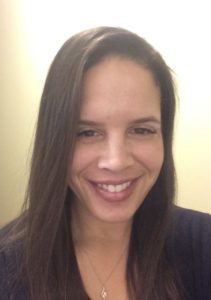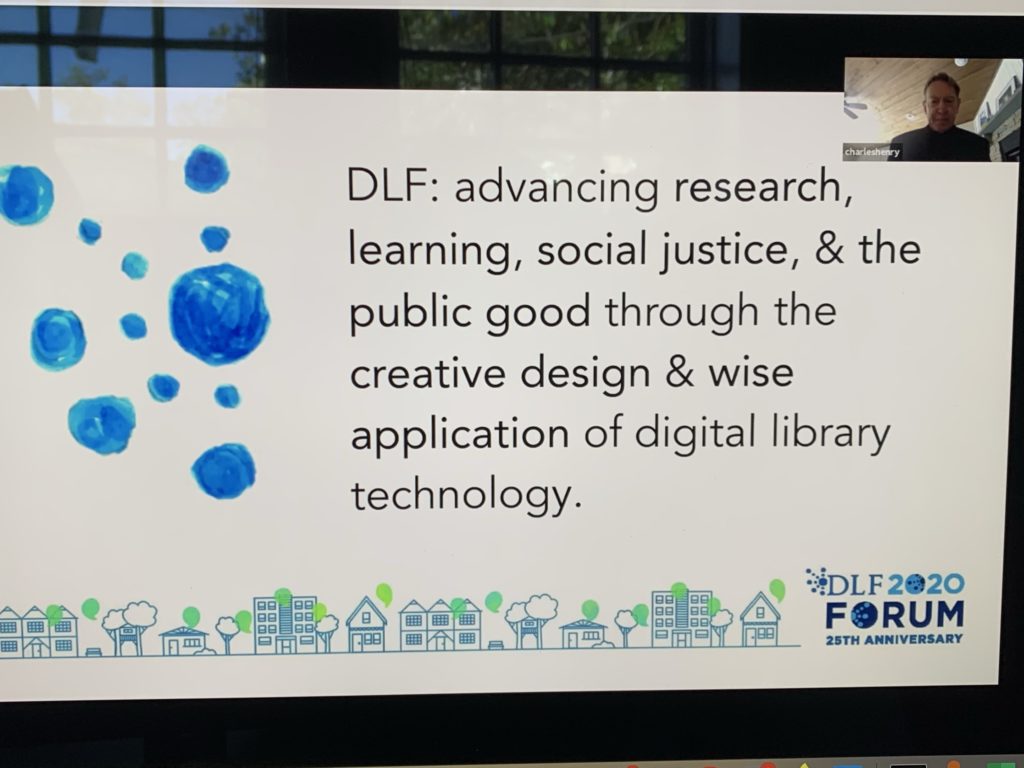 This post was written by Hsiu-Ann Tom, who was selected to be one of this year’s virtual DLF Forum Community Journalists.
This post was written by Hsiu-Ann Tom, who was selected to be one of this year’s virtual DLF Forum Community Journalists.
Hsiu-Ann is the Digital Archivist at The Amistad Research Center in New Orleans, LA where her work focuses on born digital collection development. She received her Masters in Library and Information Science with a concentration in Archives Management from Simmons University in Boston in 2019. She is a graduate of Columbia University (BA, Sociology) and Harvard University (MA, Religion and Politics), and is a member of the Academy of Certified Archivists. Prior to working in the archival field, Hsiu-Ann served in the United States Army intelligence field as a cryptolinguistic analyst, attending the Defense Language Institute in Monterey, California. Before coming to Amistad, Hsiu-Ann worked on the archives staff of Boston University’s Howard Gotlieb Archival Research Center working with the Military Historical Society of Massachusetts Collection. She recently obtained the Society of American Archivist Digital Archivist Specialist certification and enjoys supporting students and new professionals in their educational development through her work as a member of SAA’s Graduate Archival Education Committee.
I am thankful for the opportunity to have helped cover this year’s conference as one of 12 Community Journalists. Given all of the challenges of 2020, I was looking forward to hearing how my colleagues were finding ways to navigate unfamiliar situations and overcome obstacles. As a new graduate in my first full-time position out of library school, it was both inspiring and encouraging to listen to so many in the field describe their innovations over the course of the conference. I am thankful to the conference organizers and attendees for assembling such a rich program for everybody to enjoy.
As I gathered my thoughts about what to write, I was overwhelmed by the achievements and innovations of the DLF community. Each session was packed with more information than I could absorb and it was a joy to hear such dedicated professionals talk about their work. Yet, when I thought about the conference experience, what stuck out to me the most was the conference design itself and its alignment with DLF’s mission and values. I considered the introductory comments of Charles Henry and the DLF mission:
DLF: advancing research, learning, social justice, & the public good through the creative design & wise application of digital library technology

The conference felt like a model for how to implement these community values. It was exciting to see ideas in action and to feel like I was included in that as a newcomer to this group.
From before the start of the conference, I appreciated the efforts of conference staff to make conference content accessible to attendees of all abilities. In light of the pandemic and the turn to online communication platforms, transcription and closed captioning services for the hearing impaired are sometimes overlooked by conference organizers. As a US Army veteran with hearing impairment who does not read lips, this was something I struggled with on my own until this year when online meetings meant I had to start asking for more accommodations. This is not always a comfortable or easy thing for anyone to do despite how accepting society says we are to helping those who need accommodations. DLF conference staff began reaching out by email prior to the conference to address these concerns and confirm the availability of captioning and transcription services for all sessions – something that has not been my experience at other conferences.
On the first day of the conference when I could not understand how to make the captioning features work, DLF had staff on hand via Zoom link to jump on a screen share to show me how things worked on the Aviary platform in real time. They emailed me links to sessions I missed, coached me through the features as I tested the captioning, showed me how transcriptions worked and even where I could have emailed transcripts of the conference sessions and slide notes to access at a later time. Normally I would have to stop videos and play them back multiple times to get content for note taking. Personally, these tools meant participating in the conference with fewer distractions and less stress. As the conference progressed, I thought more about the importance of these tools for our user community and how we can employ them to improve their experiences.
Dr. Stacey Patton’s words during her opening address stayed with me throughout the conference as I considered the topic of accessibility in my daily work. She asked attendees to consider our role as archivists. As a new archivist trying to develop policies, procedures and workflows that encourage access and use for those coming to my archive, how can I perform my work more inclusively? Are there communities being overlooked? What needs are going unmet and how do I address them? Current discussions and work around accessibility are critical to ensuring that all patrons have access to the work we perform. The DLF Forum was a great experience for me in that I was able to learn about new tools to help with accessibility like Otter.ai and how to use it. I also learned about adjusting on the fly, accepting that sometimes technology will malfunction even with the best laid plans, having a backup plan to back up your plan is a great plan and finally, asking your community of peers for help may be your best plan.
I am fortunate to have been able to attend DLF this year and to see the hard work of so many colleagues on display, learn new skills and connect with a community of professionals working in my field. There are many ways organizations demonstrate to their community of users “You are welcome here. We want you here and you are part of this community.” These simple steps taken by the DLF conference team through the accessibility tools helped me to feel part of the community this year.
Thank you to staff who provided assistance with transcription and captioning services, and to those who helped with platform support.
